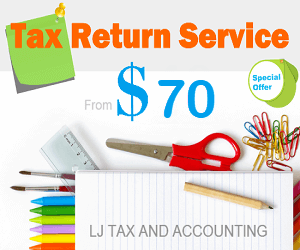

往期回顾:
小柠檬带着CCL商业背景知识
和满满在澳洲的租房干货来啦!
在这期节目中,
我们将一起来学习CCL Business话题中的
消费者事务话题:
Renting a home 租房注意事项
小柠檬贴心地为大家附上了如何正确打开资料的方式:
1. 看文本,记录business细分话题相关规定及细节(不要忘记数字噢!);
2. 听音频:音频由口音纯正的老师亲自录制,重点抓取文本里中英双译的key words,记录单词并积累单词。
*本段英文音频及文本资料加入了更多关于assurance of support的信息。
英文文本:
Renting a home
1. Essentials for tenants
·Do not sign anything unless you understand what it means.
·Never sign a blank form – for example, a bond form – even if it looks official.
·Official notices you give your landlord or agent must include all the required details.
2. At the beginning of a tenancy
·read and sign your ‘Residential Tenancy Agreement’ form
·keep a copy of anything you sign
·seek advice if you have a tenancy issue or question
·check that your new home is completely safe, and raise any issues with your landlord or agent
·complete a ‘Condition Report’ if you have paid a bond – you can add to or edit a ‘Condition Report’ completed by a landlord or agent
·consider taking photos of the property before or on the day you move in
·complete and sign the ‘Bond Lodgement’ form and keep the receipt. Your landlord or agent can lodge the bond online if they have registered with RTBA Online
·contact the utility companies of your choice to ensure these are connected by the time you move in.
3. During a tenancy
·communicate with your landlord or agent and keep them informed of any problems that may arise. You can communicate electronically (for example, by email) if both parties agree. Make sure that consent to electronic communication is in writing
·make sure you pay your rent on time
·keep all records such as rent receipts
·keep your property reasonably clean; this will minimise any problems that may occur during a landlord or agent inspection
·get written permission from your landlord if you wish to sub-let or assign the tenancy agreement to someone else
·let your landlord or agent know of any repairs that need to be done
·put all requests to your landlord or agent in writing. Forms are available from Consumer Affairs Victoria.
4. At the end of a tenancy
·give adequate notice when planning to leave; the notice period will depend on your reason for leaving
·pay any outstanding rent
·check your responsibilities for separately metered utilities
·clean the property
·consider taking photos after you move your furniture out to show the condition of the property
take all your belongings with you
·keep the ‘Condition Report’ in case of a dispute
·try to agree with your landlord or agent on the return of the bond
·if you have paid a bond, complete a ‘Bond Claim’ form and return it to the Residential Tenancies Bond Authority (RTBA).. Paper forms must be signed by you and your landlord or agent. Your landlord or agent can lodge the bond claim online if they have registered with RTBA Online
·leave a forwarding address with your landlord or agent or Australia Post.
5. Long-term leases
Long-term leasing is a new option available under the Residential Tenancies Act 1997.
From 3 April 2019, a lease agreement of more than five years is a long-term lease, and an agreement of up to five years is a short-term lease.
A long-term lease allows tenants and landlords to tailor the terms, and agree up-front on things like rent increases and minor changes to the property.
1) Benefits of a long-term lease
·The lease agreement
Long-term leases allow you to tailor the agreement to suit you and your landlord’s circumstances for a longer rental period.
·Rental bonds
If you top up your bond, you will be able to use this amount to cover any repairs or maintenance at the end of your tenancy, rather than having to come up with additional funds to cover expenses before you leave. If there are no repairs or expenses to pay at the end of the long-term lease, you can claim your bond back using the normal process.
·Rent increases
You agree at the start of the tenancy if and when your rent will increase, and by how much. The landlord can schedule the dates and amounts based on a fixed dollar amount or percentage, the Consumer Price Index (CPI) or Statewide Rent Index (SRI). The agreed increase schedule and amount cannot change without your consent.
·Property modifications
You can include certain modifications in the lease agreement that your landlord is happy for you to make during the lease period. You won’t need to get the landlord’s written permission before making these changes, but you will need their written permission before making any other changes to the property.
·Inspections
The landlord can inspect the property every 12 months.
·Ending a long-term lease agreement
You cannot shorten the lease agreement unless the landlord agrees. If you break the lease, the landlord can ask you to pay one month’s rent for every full year left on the lease. This is capped at six years, so the maximum amount the landlord can ask you to pay is six months’ rent. You may also be charged a one-off reletting or advertising fee. You can apply to the Victorian Civil and Administrative Tribunal (VCAT) if you need the lease to end early due to severe hardship.
2) How to start a long-term lease
If you have decided that a long-term lease is right for you, there are a number of ways you can start one.
·Switching from a short-term lease
If you are currently in a short-term lease agreement – any fixed-term lease of up to five years, or a month-to-month agreement with no set end date – and would like to move to a long-term lease, speak to your landlord/property manager or tenant about this. You can:
·mutually agree to end your current lease early and start a long-term lease. If you decide to do this, make sure you both agree on the terms of the long-term lease agreement before ending the short-term lease
·wait until the short-term lease ends and then start a new long-term lease agreement.
Remember – long-term leases are tailored specifically to suit a longer rental period, so have additional features, options and obligations.
·New lease agreements
If you are looking to rent or lease property for the first time, it’s a good idea to start with a short-term lease – for example, 12 months – to see if the arrangement is right for you.
If you are happy with your tenant or landlord/property manager, you can have a discussion towards the end of the 12-month lease about switching to a long-term lease.
Available at:
https://www.consumer.vic.gov.au/housing/renting/renting-guide
中文文本:
1. 开始租赁
租房之前,您需要有一份书面或口头租约,并且有足够的钱来支付保证金。
租赁协议(也叫租约)是您和房东之间订立的合同。租约规定了租金、保证金、租赁期限和类型以及其他条件和规则。
在签署租约之前,一定要了解租约中的所有内容。
获取房东或中介的联系方式。
大多数房东会要求您交保证金。如果未能保持物业清洁,对物业造成损坏或在租约到期时欠下租金,房东则可索取部分或全部保证金。
如果房东要扣留保证金,他们必须:
向 Residential Tenancies Bond Authority提出申请
向您提供一份完整的保证金申请表供您签字
制定一份物业状况报告,记录物业的一般情况。
如果在付款后15天内没有收到保证金收据, 请联系 Residential Tenancies Bond Authority。
保证金收据很重要,不要弄丢了。租约到期后,您需要收据才可以申请取回保证金。
房东或中介必须在您搬入之前给您两份已签字的房屋状况报告。要检查物业是否安全,如果发现任何安全隐患,如游泳池围栏不完整或由明显的电气问题,请告知或中介。检查物业并填写报告,记录任何现有的损坏,如裂缝、墙壁上的痕迹或把手断裂等。如果您不同意房东或中介记录的内容,也要在状况报告上注明。
入住后三天内,将一份签署好的状况报告返还给房东或中介。
自己留存一份状况报告。如果在清理、损坏或替换丢失物品方面存在争议,您可能需要在租赁期结束时使用状况报告。
联系您所选择的水、电、煤气和电话公司,确保在您搬入时已经接通。一般来说,您有责任安排办理这些服务并支付账单。
2. 租赁期间
租房时您有一定的权利和责任。
按时交房租。您有权收到每笔租金的收据。
合理保持租赁物业的清洁。如果您没有合理保持清洁,或者造成了损坏,那么您可能无法在结束租约时拿回全部保证金。
未经房东同意,不得翻新、改动或重新装修房屋。
尊重邻居的隐私,不扰乱邻居的安宁,确保访客也是如此。
房东或中介有权进入租赁物业,但必须给您至少24小时的书面通知,并告知您为什么需要进入该物业。各种充分的理由列于房东或业主进入物业页面。他们也可以在约定的日期和时间进入物业,只要不超过约定日期七天即可。
告诉房东或中介需要进行修理。
3. 紧急修理
如果您需要紧急修理,请联系房东或中介。紧急修理的项目是使物业不安全或无法居住的情况;例如水池围栏、电气设备或加热器损坏、水管爆裂、屋顶严重泄漏、燃气器具泄漏或厕所系统故障。您可以在紧急维修页面上找到完整的列表。
房东或中介应立即对紧急维修请求作出响应。
如果您没有得到房东或中介的及时答复,您可以授权修理的最高金额为1800澳元。保留所有收据及试图安排紧急修理的记录。
然后您可以向房东或中介提供一份通知,要求他们偿还您支付的紧急修理费用。他们从收到通知之日起有14天的时间付款。表格可从表格和出版物页面获得。
如果您付不起紧急维修费用, 维修费用超过1800澳元或房东拒绝付款, 请致电Consumer Affairs Victoria 进行咨询。
4. 非紧急修理
书面向房东或中介提出非紧急维修请求。您可以写信或发电子邮件或使用我们的表格和出版物页面中提供的表格。
保留所有信件、电子邮件、短信、表格和报告的副本,这样一来,一旦出现问题或争议,您就有了采取所有行动和请求的证据。
如果房东或中介在接到通知后14天内未进行维修,请致电Consumer Affairs Victoria。
5. 终止租约
当您想搬出租赁房屋时,则必须按正确日数提前通知房东,并保持房屋的干净。
当您打算搬离时,请书面告诉房东或中介。
请向Consumer Affairs Victoria 查询,了解您必须提前多少日给出通知。这将因您的情况而异。
与房东或中介讨论退还保证金的事宜。
请填写保证金申索表格,并交回Residential Tenancies Bond Authority。表格必须由您和房东或中介签字。
如果您不同意房东索要保证金的金额,请不要在保证金申请表上签字。请联系Consumer Affairs Victoria 获得免费建议。
请不要在空白保证金申请表上签字。
请支付任何未付的租金和账单。
清洁租赁物业并带走所有物品。
请保存房屋状况报告,以防出现争议。
给房东或中介留下联系地址和电话号码。
6. 切记事项
除非您明白什么意思,否则不要签字。
绝不要在空白表格上签名,即使看起来是正式表格,也是如此。
保留您所签名的任何文件的副本。
每次由支付需要时,都要索要收据。
安全保管保证金收据及任何其他租金或修理收据。
available at:
https://www.consumer.vic.gov.au/resources-and-tools/other-languages/chinese-simplified/your-renting-rights
其他补充听力材料:
https://youtu.be/wA5oBNp5Z5A
https://youtu.be/NzH17DCBPBE
https://youtu.be/XEJvBb7w0xE
https://youtu.be/cY7b2TA-8Ng
小柠檬建议大家收藏这篇(良心)CCL资料,
并希望同学们把笔果CCL的
学术干货分享给身边一起备考的朋友哦~



正在备考CCL?
加入CCL学术交流群:

推 荐 阅 读


















